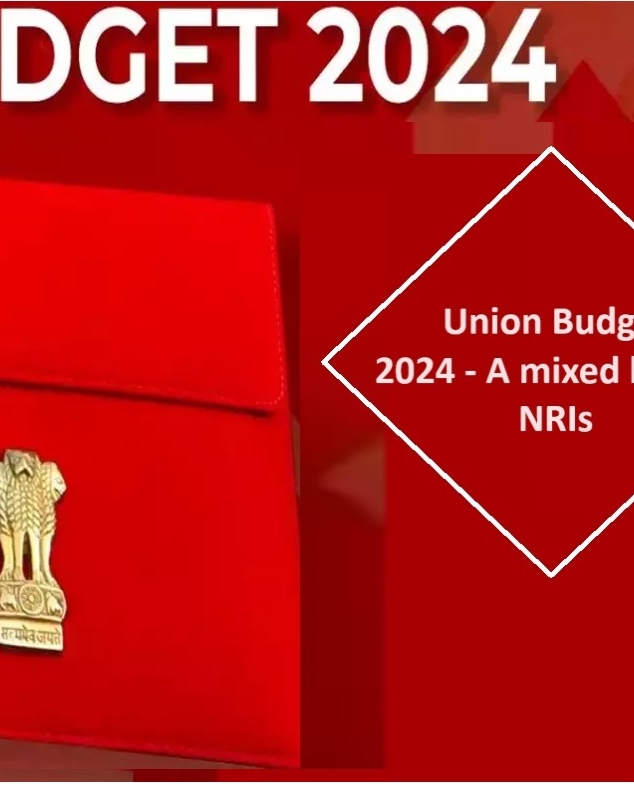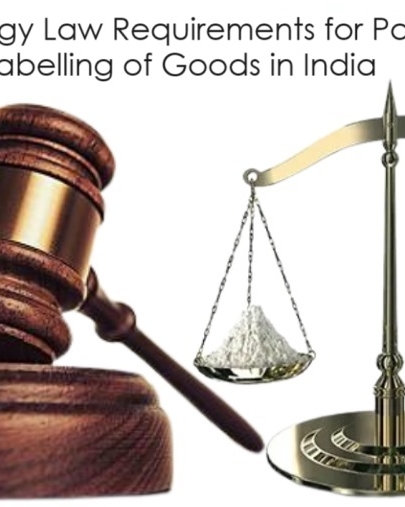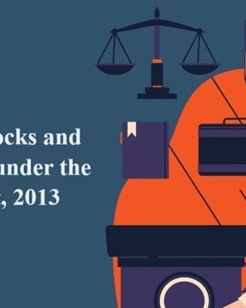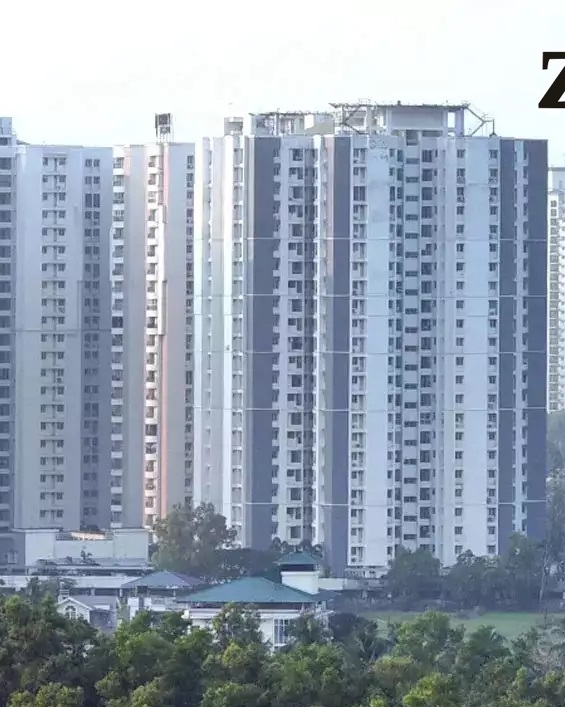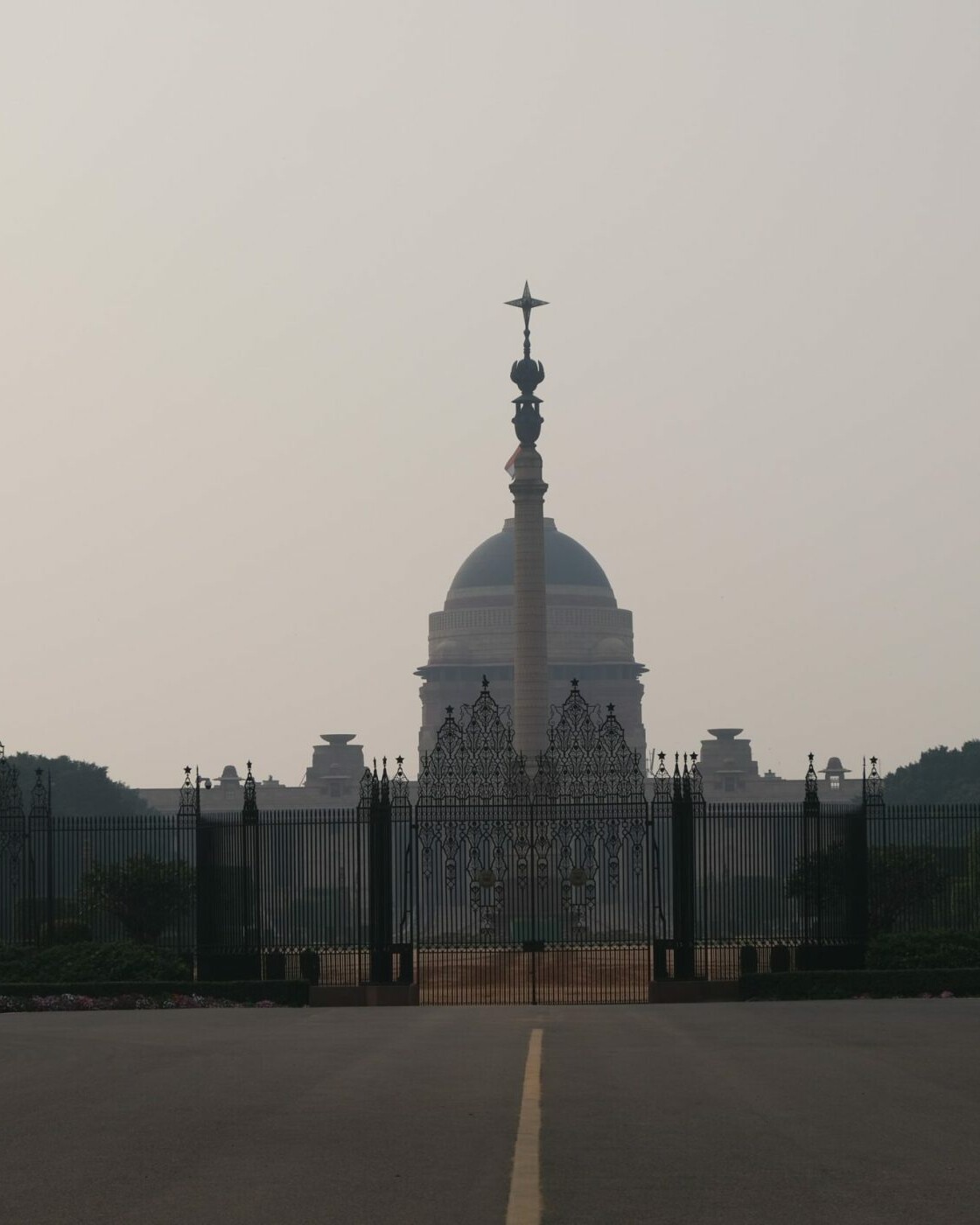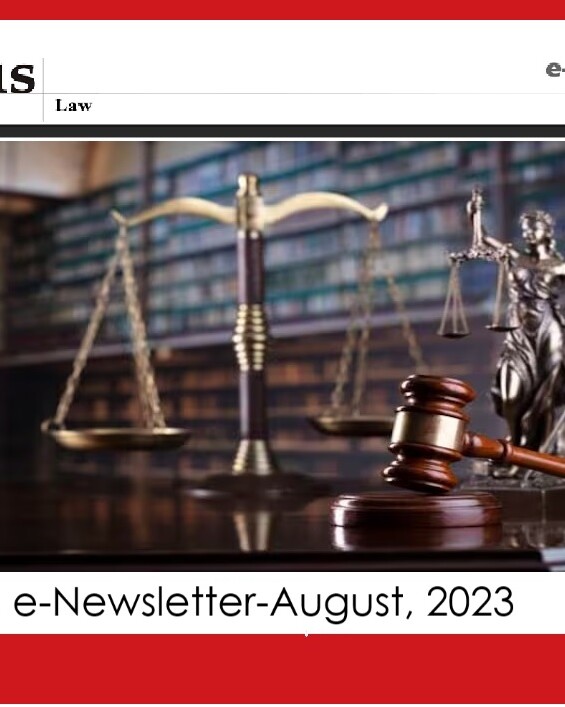Highlights:
Corporate Brief
- SEBI Circular regarding Guidelines with respect to excusing or excluding an investor from an investment of AIF.
- SEBI Circular on Direct plan for schemes of Alternative Investment Funds (AIFs) and trail model for distribution commission in AIFs.
- SEBI Circular regarding Bank Guarantees (BGs) created out of clients’ funds.
RERA Brief
- Order issued by Rajasthan RERA regarding delayed registration of ongoing projects and delayed applications for extension.
- Order issued by Rajasthan RERA regarding change in standard fee in case of applications for registration of projects (other than plotted development projects).
NCLT Brief
- An application for withdrawal of CIRP Proceedings cannot be kept pending for the Constitution of committee of creditors
Litigation Brief
- High Courts hold no capacity to alter or amend the registered lease deed under its writ jurisdiction.
- Supreme Court can invoke powers under Article 142 and grant Divorce on the ground of ‘Irretrievable breakdown of marriage’
- MERE POSSIBILITY OR EXISTENCE OF CRIMINAL PROCEEDINGS IN RESPECT OF AN AGREEMENT WOULD NOT MAKE THE DISPUTES ARISING UNDER IT NON-ARBITRABLE
Corporate Brief
Circular No. SEBI/HO/AFD-1/PoD/P/CIR/2023/053 dated 10.04.2023 of the Securities and Exchange Board of India (“SEBI”)
Guidelines with respect to excusing or excluding an investor from an investment of AIF
SEBI vide Circular No. SEBI/HO/IMD/DF6/CIR/P/2020/24 dated 05.02.2020 introduced templates for Private Placement Memorandum (PPM) for AIFs to ensure adequate disclosure. However, it was observed that there is inconsistency in the information disclosed in PPMs. A proposal was deliberated in the Alternative Investment Policy Advisory Committee (‘AIPAC’) to review the information disclosed in PPM under the term ‘Excuse and Exclusion’ for excusing or excluding an investor from an investment of the AIF.
Based on AIPAC’s recommendations, SEBI issued Circular No. SEBI/HO/AFD-1/PoD/P/CIR/2023/053 dated 10.04.2023 whereby several grounds have been specified wherein an AIF may excuse its investor from participating in a particular investment.
Circular No. SEBI/HO/AFD/PoD/CIR/2023/054 dated 10.04.2023 of the Securities and Exchange Board of India (“SEBI”)
Direct plan for schemes of Alternative Investment Funds (AIFs) and trail model for distribution commission in AIFs.
SEBI vide Circular No. SEBI/HO/IMD/DF6/CIR/P/2020/24 dated 05.02.2020 introduced PPM templates for AIFs to ensure that a minimum level of information is disclosed to investors.
These templates provided for disclosure with respect to the Direct Plan for investors, and constituents of fees that may be charged by the AIF/ scheme of AIF, including distribution fee/ placement fee.
The Circular further aims to provide flexibility to investors for investing in AIFs, bring transparency in expenses and curb mis-selling, specifying the following:
- Direct Plan for schemes of AIFs;
- Trail model for distribution commission in AIFs
The provisions of this Circular shall be complied with for investors on-boarded from May 01, 2023 onwards.
Circular No. SEBI/HO/MIRSD/MIRSD-PoD-1/P/CIR/2023/061 dated 25.04. 2023 of the Securities and Exchange Board of India (“SEBI”)
Bank Guarantees (BGs) created out of clients’ funds.
To address the risks associated with pledging client funds, the Securities and Exchange Board of India (SEBI) has implemented measures to safeguard investor interests. Effective May 1, 2023, stockbrokers (SBs) and clearing members (CMs) are prohibited from creating new Bank Guarantees (BGs) using clients’ funds. Existing BGs created from clients’ funds must be wound down by September 30, 2023. These measures do not apply to SBs/CMs’ proprietary funds or funds deposited as clients.
Stock exchanges and clearing corporations will monitor and report on the status of BGs issued by SBs/CMs and ensure a smooth implementation of the circular. They will provide periodic reports to SEBI starting from June 1, 2023, including collateral data and the number of BGs as collateral.
SBs/CMs are required to obtain a certificate from their statutory auditor confirming compliance with the circular, which must be submitted to stock exchanges/clearing corporations by October 16, 2023. Stock exchanges and clearing corporations will verify compliance during inspections and reporting, establishing mechanisms to address non-compliance.
The circular modifies previous SEBI circulars related to collateral, dealings between clients and stockbrokers, enhanced supervision, margin obligations, default procedures, and collateral segregation and monitoring. Stock exchanges and clearing corporations must disseminate the circular, make necessary amendments to their rules and regulations, and provide implementation updates in their monthly reports to SEBI.
RERA Brief
Order issued by Rajasthan RERA regarding delayed registration of ongoing projects and delayed applications for extension
- The Rajasthan Real Estate Regulatory Authority vide its Order F4(1)RJ/RERA/2017/Part/D-1120 dated 13.04.2023 issued the following instructions under Section 37 of the Real Estate (Regulation and Development) Act 2016 read with Section 23(3) of the Rajasthan Real Estate Regulatory Authority Regulation, 2017:
- As per Order No. 5900 dated 10.08.2020, Order No. 1901 dated 27.09.2021 and Order No. 1074 dated 19.04.2022 regarding delayed applications for registration of ongoing projects, in addition to the registration fees, the penalty for late registrations was directed to be equal to four times the registration fee, and standard fees equal to twice the registration fees was payable for applications received up till 31.03.2023. The said orders were partially modified vide order dated 13.04.2023 wherein it has been mentioned that in cases of delayed applications for registration of on-going projects, the abovementioned prescribed rates and standard fees would continue to be applicable till 30.09.2023.
- The concessional rates of fee for delayed extension of registration, as provided under Order No. 1429 dated 25.08.2020 (Special Campaign for delayed applications for extension) which has been extended from time to time will now remain in effect until 30.09.2023.
- For cases related to extension for a period of six-months under Order No. 804 dated 28.06.2021, as amended by Order No. 1901 dated 27.09.2021 and Order No. 1074 dated 19.04.2022, it has been determined that in cases of delay beyond 31.03.2023 till 30.09.2023, a penalty of 50% of the registration fee will be payable and a further delay beyond 30.09.2023 will attract a penalty equal to registration fee.
- The said order dated 13.04.2023 is effective from 01.04.2023.
Order issued by Rajasthan RERA regarding change in standard fee in case of applications for registration of projects (other than plotted development projects)
The Rajasthan Real Estate Regulatory Authority vide its Order No. F4(1)RJ/RERA/2017/Part/D-1130 dated 18.04.2023 issued the following instructions under Section 37 of the Real Estate (Regulation and Development) Act 2016 read with Section 23(3) of the Rajasthan Real Estate Regulatory Authority Regulations 2017:
- An amendment has been made to Order No. 3080 dated 16.08.2019 and Order No. 609 dated 30.03.2021 and it has been decided that in respect of all types of new projects (excluding plotted development projects), the standard fee payable would be Rs. 5/- per square meter which has been reduced from the previously applicable standard fees i.e., Rs. 10/- per square meter. Further, the standard fee payable will be calculated on the basis of phase area of the project. In cases where the gross built-up area of the project exceeds the phase area, the fee calculation for the said project will be based on the gross built-up area. In such cases, the rate and method of calculating the registration fee would remain unchanged.
- The said order dated 18.04.2023 is applicable to online applications filed from 19.04.2023 and not on the applications received till 18.04.2023.
NCLT Brief
An application for withdrawal of CIRP Proceedings cannot be kept pending for the Constitution of committee of creditors
The Hon’ble Supreme Court decided upon what course should be adopted by the National Company Law Tribunal (“NCLT”) while dealing with the withdrawal application for Corporate Insolvency Resolution Process (“CIRP”) proceedings before the constitution of the Committee of Creditors (“COC”).
BRIEF FACTS:
- Section 9 application under Insolvency and Bankruptcy Code (“IBC”) was filed by Operational Creditors, i.e. Huhtamaki PPL Limited against the Corporate Debtor, Manpasand Beverages Limited which was admitted by the NCLT, Ahmedabad by order dated 01.03.2021, thereby CIRP proceedings of the Corporate Debtor were initiated. On 03.03.2021, the Operational Creditor and the Corporate Debtor entered into a settlement whereby full and final payments were made to the Operational Creditor by the Corporate Debtor. The settlement was arrived at before the COC was constituted.
Subsequently, the Interim Resolution Professional (“IRP”) on 10.03.2021 moved an application under Regulation 30A Insolvency and Bankruptcy Board of India (Insolvency Resolution Process for Corporate Persons) Regulations, 2016. (“CIRP Regulations”).
- The Operational Creditors also moved an application under Section 12A of IBC which was clubbed with the application under Regulation 30A of CIRP Regulations.
- Meanwhile, an appeal was preferred against the Section 9 admission order dated 01.03.2021 before the National Company Law Appellate Tribunal (“NCLAT”) on the ground that Section 9 petition was not maintainable as there was a pre-existing dispute.
- On 26.03.2021, the appeal was withdrawn in light of the settlement agreement with the liberty to seek restoration in case the settlement failed and further, there was a stay on the constitution of COC.
- NCLT vide order dated 13.04.2021 rejected the withdrawal application filed under Regulation 30A of CIRP Regulations and fixed the matter for disposal of the application after hearing all the creditors whose claims have been received by IRP. Subsequently, IRP constituted the COC on 15.04.2021.
- The suspended director of the Corporate Debtor preferred a Special Leave Petition before the Hon’ble Supreme Court assailing the correctness of the order dated 13.04.2021 passed by the NCLT.
FINDINGS OF SUPREME COURT
- Withdrawal application to be allowed even before constitution of COC: Rule 11 of NCLT Rules, 2016 confer inherent powers on NCLT to pass appropriate orders for meeting the ends of justice or to prevent abuse of process of the Tribunal. Further, Section 12A permits the withdrawal of applications admitted under Sections 7, 9 or 10 of IBC with approval of 90% voting share of the COC. Regulation 30A of CIRP Regulations, 2016 were introduced after Section 12A in IBC which provides for withdrawal of the application before the constitution of COC and after the constitution of COC. The Court observed that once the parties had settled the dispute even before the constitution of COC, the withdrawal application ought to have been allowed then and there rather than awaiting the other creditors to jump into the fray and allow the IRP to proceed further with the CIRP proceedings.
- Binding effect of Regulation 30A CIRP Regulations, 2016: Apex Court further observed that the Regulations may be subordinate in character, however, they would still carry a statutory flavor and would be binding on NCLT. Regulation 30A clearly provides for withdrawal applications being entertained before constitution of COC. Thus, NCLT committed an error in holding that Regulation 30A would have no binding effect on it and rejecting the withdrawal application.
- Section 12A IBC: Even though Section 12A IBC does not specifically mention withdrawal of the applications where COC has not been constituted but at the same time it does not debar NCLT from entertaining applications for withdrawal even before constitution of COC.
- Claims received from other creditors not to be whittled down: Hon’ble Supreme Court held that the rights of creditors for their respective claims would not be adversely affected if the settlement is to be accepted in the present case and the Section 9 application is withdrawn. The creditors are at the liberty to raise their independent claims in appropriate proceedings.
CONCLUSION:
Thus, the Hon’ble Supreme Court held that the Regulation 30A of CIRP Regulations and Section 12A IBC in no way conflict each other and should be read conjointly. NCLT fell in error while rejecting the withdrawal application of Section 9 Application in the present case as the Section 12A application which is filed before constitution of COC for withdrawal of CIRP proceedings cannot be kept pending for constitution of COC. Hence, the application filed under Regulation 30A of CIRP Regulations deserved to be allowed.
Case referred: Abhishek Singh vs Huhtamaki PPL Limited & another [SLP (Civil) 6452 of 2021] – Supreme Court
Litigation Brief
High Courts hold no capacity to alter or amend the registered lease deed under its writ jurisdiction.
IN THE MATTER OF: Gwalior Development Authority and Anr. v. Bhanu Pratap Singh, 2023 SCC OnLine SC 450
Decided by Hon’ble Supreme Court of India on 19.04.2023
Facts:
- The factual matrix of the present case is that the Appellants (Gwalior Development Authority) issued an advertisement and invited bids for the execution of leases of various plot areas under the transport city scheme. The Respondent was one of the bidders for a market complex bearing plot area of 27887.50 sq. meters and Respondent’s bid @Rs.725/- per sq. meter being the highest, was finally accepted. In furtherance of the same, a letter of allotment was issued to the Respondent.
- The Respondent requested for revising the layout plan which was amended and accepted by the Appellants. Although the Respondent failed to deposit the installments as per the terms and conditions of the bid document, however, no action on the same was taken by the Appellants due to which the transaction stood concluded. The final bid area was 18262.89 sq. meters, on which the lease deed was executed without demur.
- Later, the Respondent approached the High Court of Madhya Pradesh by filing a writ of mandamus against the Appellants to execute the lease deed for the remaining area of 9625.50 sq. meters in addition to the lease deed executed earlier. The High Court issued mandamus against the Appellants for the execution of lease deed without any consideration but with liability on the Respondent for any payment of interest for a period of around 4 years. Hence, the Appeal was filed by the Appellants in Supreme Court.
Issues:
The issue which arose before the Hon’ble Supreme Court was whether a High Court can amend a registered lease deed in exercise of writ jurisdiction conferred upon it by Constitution of India.
Supreme Court’s Observations:
- The Hon’ble Supreme Court, in its appeal against the order passed by Division Bench of High Court of Madhya Pradesh, held that a lease deed executed after the compulsory registration under Section 17 of the Registration Act, 1908 holds no door to be altered or amended even by the writ jurisdiction of High Court vested in it under Article 226 of the Constitution of India, 1949.
- The two-judge bench of the Supreme Court of Justice Ajay Rastogi and Justice Bela M. Trivedi held that post the conclusion of transaction and the instrument being registered, the lease deed can’t be questioned, at least through the writ jurisdiction of the High Court under Article 226. The mandamus issued by the High Court to execute the lease deed for the remnants is completely contrary to the settled principles of law and hence was set aside.
- The Hon’ble Supreme Court showed strong reservations while analyzing the action taken up by the High Court which was observed to be clear abuse of the discretion and the powers vested in it under Article 226. It was further observed that this action of the High Court showed undue favor to the Respondent which is violative of Article 14 of the Constitution of India. Supreme Court observed that “whenever there is such a business/commercial transaction, it is always to be examined on the commercial principles where equity has no role to play.”
- The Apex Court held that once the lease deed is executed, it could neither be repudiated by the parties seeking it through filing a writ of mandamus nor could it be altered or amended in any way.
- While considering the main question of the left-out area of land during the long due matter in hand, the Apex Court gave first opportunity to Respondent to purchase the remaining area of the land which was originally part of the land, and the Authority was directed to consider Respondent’s request on priority basis, if it is acceptable to the Respondent on the present prevalent circle rate notified by the Government.
- In view of the above observations, the Hon’ble Supreme Court allowed the Appeal and the Order of the High Court was quashed and set aside.
Supreme Court can invoke powers under Article 142 and grant Divorce on the ground of ‘Irretrievable breakdown of marriage’
Transfer Petition (Civil) No. 1118 of 2023- Shilpa Sailesh Vs. Varun Sreenivasan, Hon’ble Supreme Court decided on 01.05.2023
The foremost issue that was placed before the Constitution Bench comprising of Justices Sanjay Kishan Kaul, Sanjiv Khanna, Abhay S. Oka, Vikram Nath and J K Maheshwari was whether the period and the procedure prescribed under Section 13-B (2) of the Hindu Marriage Act, 1955 can be waived or reduced by Hon’ble Supreme Court in exercise of its jurisdiction under Article 142 of the Constitution of India. The second issue pertains to the ambit/scope of power of the Hon’ble Supreme Court under Article 142 (1) and whether it can grant decree of divorce when there is complete and irretrievable breakdown of marriage notwithstanding one of the party is not consenting to the terms.
The Hon’ble Court was of the opinion that when every effort has been made to restore the marriage and there is no possibility of reunion or cohabitation and the court is satisfied beyond doubt that the marriage has shattered beyond repair, then the Court can waive the six months period. It further held that this Court in exercise of jurisdiction under Article 142(1) of the Constitution of India in such cases is clearly permissible to do ‘complete justice’ to a ‘cause or matter’.
The Hon’ble Court differentiated between the concepts of existence of power and exercise of power in a given case specifying that the existence of power is generally a matter of law whereas exercise of power is a mixed question of law and facts. The Court by the present judgment held that the discretion has to be exercised on the basis of facts of the matter in hand that is evaluated on objective criteria keeping in mind the aim of the statutory provisions. It has been clearly laid down by the Hon’ble Court that grant of divorce on the ground of irretrievable marriage is not a matter of right but a discretion which is to be exercised with great care and caution considering the several factors and duly ensuring that ‘complete justice’ is done to both the parties. Further, several factors were laid down to determine and establish that the marriage has irretrievably broken down.
By way of this judgment, the Hon’ble Court distinguished and held that in context of matrimonial disputes arising out of Hindu Marriage Act, the power to do ‘complete justice’ by virtue of Article 142 (1) is unfettered by the doctrine of fault and blame, applicable to Divorce Petitions under Section 13(1)(i-a) of the Hindu Marriage Act. The judgment observed that “it would be in the best interest of all, including the individuals involved, to give legality, in the form of formal divorce, to a dead marriage, otherwise the litigation(s), resultant sufferance, misery and torment shall continue”.
The Bench also clarified that a party cannot file a writ petition under Article 32 of the Constitution of India to seek relief of dissolution of marriage on the ground of irretrievable breakdown of marriage directly from it on the foremost reason that the parties should not be permitted to circumvent the procedure and should approach the superior tribunal/forum for redressal of its grievance.
MERE POSSIBILITY OR EXISTENCE OF CRIMINAL PROCEEDINGS IN RESPECT OF AN AGREEMENT WOULD NOT MAKE THE DISPUTES ARISING UNDER IT NON-ARBITRABLE
IN THE MATTER OF: Ugro Capital Ltd. v. Raj Drug Agency
(Pronounced by the Hon’ble High Court of Calcutta on 26.04.2023 in A.P. No. 200 of 2022 [2023 SCC OnLine Cal 960])
- Facts:
- The Petitioner, M/s Ugro Capital Limited., is a Non- Banking Financial Company having its registered office in Mumbai and is engaged in the business of providing customized loan services to its customers.
- The Respondent No. 1, Raj Drug Agency, is a proprietorship firm having its registered office in Calcutta and is engaged in the business of pharmaceuticals and medical drugs. The Respondent No. 2, Mr. Prakash Chandra Gupta, is the proprietor of Respondent No. 1. The Respondent No. 3, Kiran Gupta is the next of kin of Respondent No. 2 and the Respondent No. 4, Mr. Saikat Pal, is an associate of the Respondents.
- The Respondent No. 4 vide an agreement, dated 28.02.2000, was entrusted with the management of Respondent No. 1 and was allowed to use the bank account and all other licenses and permissions for running the pharmaceuticals business.
- The Parties entered into an Agreement, dated 28.11.2020 (“Agreement”), under which the Petitioner disbursed the loan amount of Rs. 25,45,000 to the bank account of the Respondent No. 1 maintained with Axis Bank. This credit facility was repayable within 36 months with floating rate of interest at the rate of 19.5% per annum. The agreed quantum of instalment payable per month was Rs. 93,934 with effect from 10.01.2021 till 10.12.2023.
- On 10.09.2021 the interest payment through ECS was dishonoured as the bank account of the Respondent was frozen/blocked. The Petitioner issued a notice, dated 07.10.2021, under Section 25 of the Payment and Settlement System Act, 2007, demanding payment of the said dishonoured electric fund transfer within the statutory period. The Respondents defaulted in re-payment of the instalments and, hence, the loan was recalled.
- The Petitioner had filed an application under Section 9 of the Arbitration and Conciliation Act, 1996 (“the Act”) for interim orders being A.P. No. 39 of 2022. The Hon’ble Court vide order, dated 02.03.2022, directed an injunction on the property of the Respondents and the bank account to the extent of Rs. 24,40,945.51. The Respondents have filed an appeal against the order being A.P.O. No. 62 of 2022, which was pending. Thereafter, the Petitioner preferred the an application, being A.P. 200 of 2022, under Section 11 of the Act for appointment of the arbitrator.
- The Respondent Nos. 2-3 alleged that the sanction letter issued by the Petitioner has not been signed by the Respondents and signatures appearing on the documents are blatant forgeries and further alleged that Respondent No. 4 was appropriating/siphoning off monies received in the bank accounts of Respondent No. 1.
Issues:
- Whether the Arbitrator can be appointed under Section 11 of the Act when there is an allegation of fraud?
- Does the existence or possibility of existence of criminal proceedings renders the dispute non-arbitrable?
Courts Observations and Findings:
- The Hon’ble High Court of Calcutta relied upon twofold test to decide upon allegations of fraud vis-à-vis appointment of arbitrators laid down by the Hon’ble Supreme Court of India in the case of Rashid Raza v. Sadaf Akhtar[1] which made a distinction between a serious allegation versus simple allegation of fraud. The twofold test is as under:
“(1) does this plea permeate the entire contract and above all, the agreement of arbitration, rendering it void; or
(2) whether the allegations of fraud touch upon the internal affairs of the parties inter se having no implication in the public domain.”
- The Court further relied upon the case of Avitel Post Studioz Limited v. HSBC PI Holdings (Mauritius) Limited[2] which further clarified the above stated twofold test and held that “…if it is clear that a civil dispute involves questions of fraud, misrepresentation, etc. which can be the subject matter of such proceeding under Section 17 of the Contract Act, and/or the tort of deceit, the mere fact that criminal proceedings can or have been instituted in respect of the same subject matter would not lead to the conclusion that a dispute which is otherwise arbitrable, ceases to be so.”
- The Court while referencing the case of Vidya Drolia v. Durga Trading Corporation[3] further opined on the the law with respect to arbitrability and stated that the Court hold the matter to be non-arbitrable and refuse to refer the matter to arbitration only where the Court unerringly finds that the agreement or the arbitration clause does not exist.
- In the facts of the present case, the Court held that a clear inference cannot be drawn that the Agreement was not entered into by the answering respondents since the money was credited to the account of the Respondent No. 1 and Respondent No. 4 was granted the power to run the business of Respondent No. 1 and make use of its bank accounts. The Court further stated that the allegations of siphoning off of monies by the Respondent No. 4 raises inter-se disputes between the Parties and appointed Ms. Radhika Singh, Advocate as the arbitrator.
- The Court categorically stated that the “mere possibility or existence of criminal proceedings in respect of the same would not make the dispute non-arbitrable.”
[1] (2019) 8 SCC 710.
[2] (2021) 4 SCC 713.
[3] (2021) 2 SCC.







